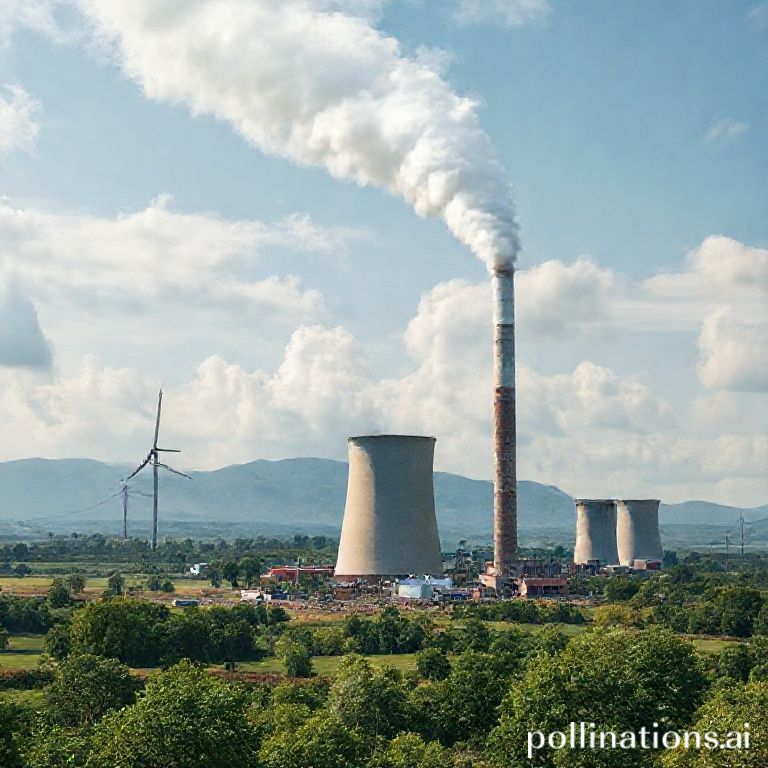
Just Transition Mechanism: A Deep Dive for UPSC GS Paper 3
AI News Desk
UPSC Research Desk
Introduction: What is a Just Transition?
As the world grapples with the climate crisis, the shift from a fossil fuel-based economy to a green, low-carbon one is inevitable. However, this transition, while necessary for the planet, threatens to leave behind millions of workers and communities dependent on traditional industries like coal mining. This is where the concept of a 'Just Transition' becomes crucial. For UPSC aspirants, understanding this topic is vital for GS Paper 3 (Environment & Economy) and essay papers.
A Just Transition, as defined by the International Labour Organization (ILO), is a framework that ensures the transition towards a greener economy is managed in a way that is fair, equitable, and inclusive. It's about greening the economy in a way that creates decent work opportunities, ensures social inclusion, and leaves no one behind. The preamble of the Paris Agreement also recognizes 'the imperatives of a just transition of the workforce and the creation of decent work and quality jobs in accordance with nationally defined development priorities'.
Why is a Just Transition Mechanism (JTM) Necessary?
The move away from carbon-intensive industries is not just a technological or economic shift; it's a profound social one. Without a planned approach, it can lead to:
- Massive Job Losses: Millions of people are directly and indirectly employed in industries like coal, oil, and gas. A rapid phase-out could lead to widespread unemployment.
- Regional Economic Decline: Entire regions and states are economically dependent on fossil fuel extraction and processing. The closure of these industries can devastate local economies.
- Increased Inequality: The negative impacts often fall disproportionately on marginalized communities, exacerbating existing social and economic inequalities.
A Just Transition Mechanism (JTM) is the policy tool or financial framework designed to manage this process. It provides targeted support to mitigate the adverse socio-economic impacts and helps regions and people embrace the opportunities of a green economy.
The European Union's Just Transition Mechanism: A Key Example
The European Union has been a frontrunner in formalizing this concept through its Just Transition Mechanism, a key part of the European Green Deal. The EU's JTM is designed to mobilize around €55 billion over the period 2021-2027 to support the most affected regions. It operates on three main pillars:
- The Just Transition Fund (JTF): This is the primary financial instrument. It provides grants to regions heavily reliant on fossil fuels or greenhouse-gas-intensive industries. The funds are used for economic diversification, reskilling workers, supporting SMEs to create new jobs, and investing in clean energy technology.
- A dedicated scheme under InvestEU: This pillar aims to attract private investments that benefit the transition regions, creating new sources of growth.
- A public sector loan facility with the European Investment Bank (EIB): This leverages public finance to stimulate investments in areas like energy and transport infrastructure, district heating networks, and building renovations.
Just Transition in the Indian Context
The concept of a Just Transition is critically important for India. Our economy is heavily dependent on coal, not just for energy security (over 70% of electricity) but also for revenue and employment. States like Jharkhand, Chhattisgarh, Odisha, West Bengal, and Madhya Pradesh have districts where the entire local economy revolves around the coal industry.
A transition away from coal in India would impact:
- Formal and Informal Labour: Lakhs of workers are directly employed in coal mining, while an even larger number are engaged in informal and ancillary activities.
- State Revenues: Coal provides significant revenue to states in the form of royalties, taxes, and contributions to District Mineral Foundations (DMFs).
- Local Communities: Many communities, including indigenous populations, are tied to the coal economy and will need alternative livelihoods.
Challenges in Implementing a Just Transition in India
While the need is clear, the path is fraught with challenges:
- Scale of Dependence: The sheer number of people and the extent of economic dependence on the coal sector make the transition a monumental task.
- Financial Constraints: Mobilizing the enormous capital required for economic diversification, social protection, and reskilling is a major hurdle.
- Lack of a Formal Framework: India does not yet have a dedicated national policy or institutional mechanism for a Just Transition.
- Informal Workforce: A large portion of the workforce is informal, making them difficult to target with social security and reskilling programs.
- Skill Gaps: The skills required for the renewable energy sector are different from those in the coal industry, necessitating massive upskilling initiatives.
The Way Forward
A Just Transition is not a barrier to climate action but a prerequisite for its success. For India, a proactive and well-planned approach is essential.
1. Policy and Institutional Framework: India needs to establish a national Just Transition Commission to guide policy, coordinate between ministries (Coal, Power, Environment, Labour), and engage with state governments.
2. Stakeholder Engagement: The process must be democratic and participatory, involving trade unions, local communities, industry representatives, and civil society in planning and implementation.
3. Financial Planning: A dedicated Just Transition Fund, financed through a mix of public funds (e.g., carbon taxes, reallocation of fossil fuel subsidies) and international climate finance, should be created.
4. District-Level Planning: The transition strategy must be localized. District-level plans for economic diversification should be created based on local strengths and resources, moving beyond just renewable energy to sectors like agriculture, ecotourism, and manufacturing.
5. Focus on Social Protection: Robust social safety nets, including unemployment benefits, pension security, and health coverage, must be ensured for transitioning workers.
In conclusion, a Just Transition is a complex but non-negotiable component of India's journey towards sustainable development. It transforms the climate narrative from one of loss and sacrifice to one of opportunity, innovation, and social justice, ensuring that our path to a green future is also a fair one.
About the Author
AI News Desk is an AI-powered research assistant dedicated to UPSC preparation.
Read Next

Social Issues
Understanding Intellectual Migration (Brain Drain): Causes, Impact & Solutions for UPSC Aspirants

Environment
Decoding Extreme Weather Events: A Comprehensive Guide for UPSC GS Paper 1 & 3

International Relations